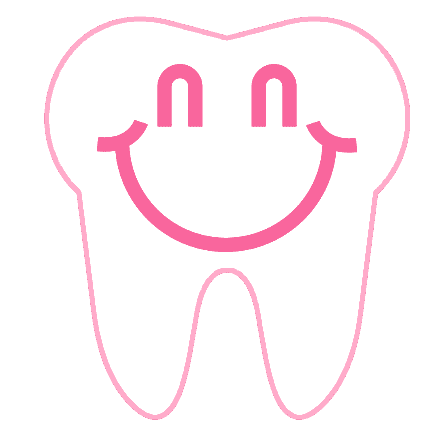As parents, ensuring the health and happiness of our children is a top priority, and this includes their oral health. Pediatric dentists are the partners we rely on to keep our kids’ teeth and gums in tip-top shape from infancy through their teenage years. Let’s dive into what these specialists do and how they keep our little ones smiling brightly.
Understanding Pediatric Dentistry
Role of a Pediatric Dentist
Pediatric dentists are the pediatricians of dentistry. They specialize in treating children’s teeth, gums, and mouths throughout the various stages of childhood. Children’s mouths can change a lot from infancy through their teenage years. Pediatric dentists are equipped to handle these changes by providing specialized care that ensures healthy development and prevents dental problems.
Training and Qualifications
To become a pediatric dentist, one must complete dental school and then undergo additional training in a pediatric residency program. This training focuses on the unique dental needs and behavioral management of children. Pediatric dentists in Beaumont are well-versed in the latest treatments and technologies to provide the best care for your children.
Preventive Care and Routine Treatments
Oral Health Exams
Starting with their first tooth, children should visit a pediatric dentist for regular oral health exams. These visits are crucial for assessing the development of your child’s teeth and spotting any early signs of dental issues.
Regular exams help ensure that children maintain good oral health…
During an exam, the dentist will check for cavities, watch how the teeth are growing, and look for any potential problems with the gums and jaw. Regular exams help ensure that children maintain good oral health and catch any issues before they become serious.
Preventive Measures
One of the primary roles of pediatric dentists is to prevent dental problems before they start. They apply fluoride treatments and dental sealants to protect teeth from decay. Fluoride strengthens the enamel, making it more resistant to cavities. Sealants are protective coatings applied to the chewing surfaces of the back teeth, where most cavities in children are found.
Pediatric dentists also provide advice on proper brushing and flossing techniques and can recommend the best dental products for your child. Additionally, they offer guidance on avoiding foods that can harm your child’s teeth, such as sugary snacks and drinks.
Nutrition and Oral Health
Diet plays a significant role in the health of a child’s teeth. Pediatric dentists educate families about foods that help maintain good oral health, such as fruits, vegetables, and dairy products, which help neutralize acids and provide minerals to strengthen enamel.
They also warn against foods that increase the risk of cavities, like sticky candies and sugary drinks. Understanding these dietary impacts helps parents make better choices to promote their children’s dental health.
This overview gives you an insight into the fundamental aspects of pediatric dentistry and the preventative care your child will receive. Next, we’ll explore some common dental procedures performed by pediatric dentists.
Common Dental Procedures
Cavity Treatment
Cavities are common in children, and treating them is a significant part of what pediatric dentists do. If a cavity is found during an oral exam, the pediatric dentist will remove the decayed part of the tooth and fill it with a safe, durable material.
This process not only repairs the tooth but also prevents the decay from spreading further. Pediatric dentists use tooth-colored fillings that blend seamlessly with the natural color of your child’s teeth, ensuring their smile remains bright and healthy.
Emergency Dental Care
Accidents happen, especially with active children. Pediatric dentists are trained to handle dental emergencies such as knocked-out teeth, fractured teeth, or severe toothaches.
Immediate treatment can save a damaged tooth and relieve pain. Parents are advised to seek urgent care from their pediatric dentist if their child experiences a dental emergency. Being prepared and knowing where to go can make a stressful situation a bit easier to manage.
Orthodontics in Pediatric Dentistry
Pediatric dentists often play a key role in the early detection of orthodontic issues. During regular visits, they look for misaligned teeth or jaw problems and might recommend seeing an orthodontist. Some pediatric dentists in Beaumont can start basic orthodontic treatments or work in conjunction with orthodontists to ensure that your child’s teeth develop correctly and remain healthy.
TIP
Early intervention can often reduce the need for more extensive orthodontic treatments later in life, helping to create a beautiful smile and a properly functioning bite.
Special Considerations in Pediatric Dentistry
Managing Dental Anxiety in Children
Many children feel nervous about visiting the dentist. Pediatric dentists are skilled at creating a friendly, relaxed environment to ease these fears. They use techniques like storytelling, distraction, and gentle reassurance to make dental visits more enjoyable. Some offices in Beaumont are even designed with children in mind, featuring colorful decor and play areas to help kids feel at ease.
For children who are particularly anxious, sedation options may be available to make their experience more comfortable. Ensuring that each visit is positive helps build a foundation of trust and can lead to a lifetime of good dental habits.
Dental Issues Associated with Common Childhood Diseases
Children with chronic conditions like asthma, diabetes, and ADHD may have special dental needs. Pediatric dentists are trained to recognize how these health issues can affect a child’s oral health. For example, children with asthma may use inhalers that dry out the mouth, which can increase the risk of cavities. Similarly, children with diabetes may have a higher risk of gum disease.
Pediatric dentists work with parents and pediatricians to manage these risks through tailored dental care plans. This may include more frequent cleanings, special mouth rinses, or specific brushing and flossing routines. Understanding the connection between overall health and oral health is crucial for providing comprehensive care to children with these conditions.
Let’s wrap up with some of the most common questions parents have about pediatric dentistry.
Frequently Asked Questions
When should a child first visit a dentist?
It’s recommended that children visit a pediatric dentist by their first birthday or within six months after their first tooth appears. Early visits help spot any potential issues with a child’s oral development and establish good dental habits from a young age.
How to prevent tooth decay in young children?
Preventing tooth decay starts with proper oral hygiene. Parents should brush their child’s teeth twice a day using fluoride toothpaste and assist with flossing once daily. Limiting sugary snacks and drinks, encouraging healthy eating habits, and regular visits to a pediatric dentist for preventive treatments like fluoride applications and sealants are also crucial.
What are the signs of dental health problems in children?
Parents should watch for signs of dental health issues such as persistent bad breath, sensitivity to hot or cold foods, pain when chewing, red or swollen gums, and frequent dry mouth. If any of these symptoms occur, it’s important to schedule a visit with a pediatric dentist to address the problem promptly.
Conclusion
Pediatric dentists play a vital role in your child’s health by ensuring their teeth and gums develop properly and remain healthy. By understanding what these specialists do and taking proactive steps in your child’s oral care, you can help set them up for a lifetime of bright smiles. Remember, a healthy smile is a happy smile!


